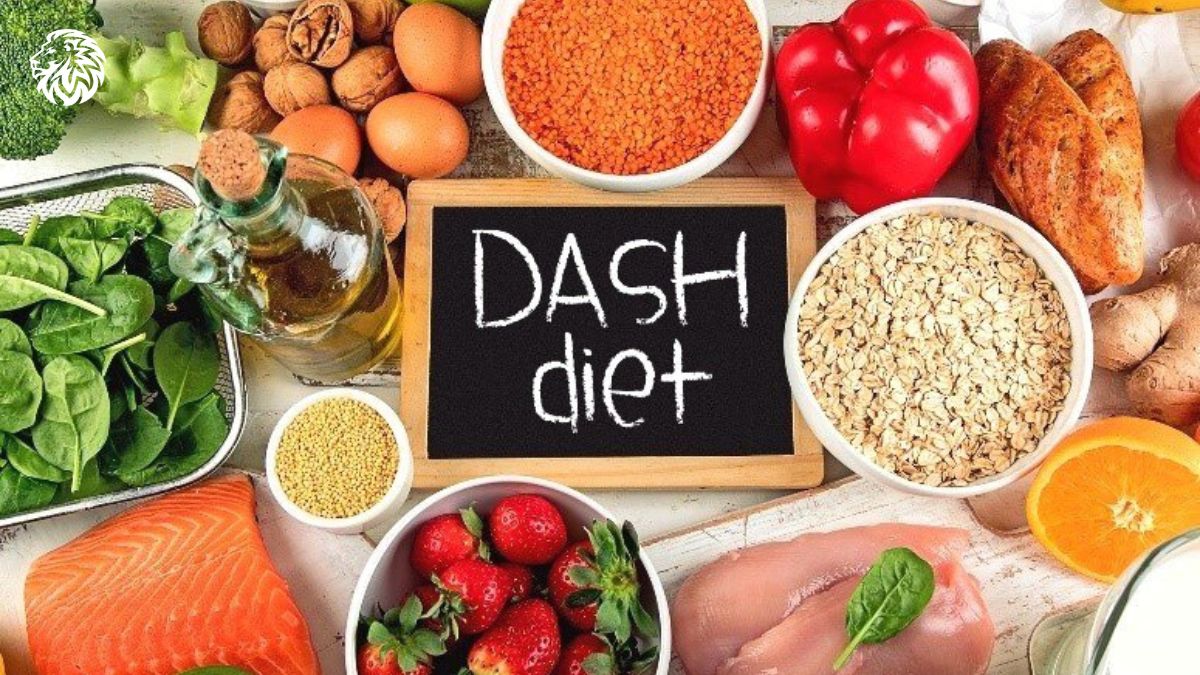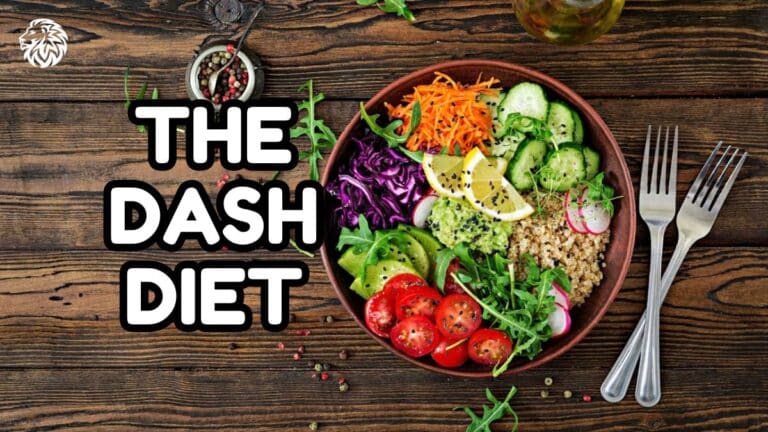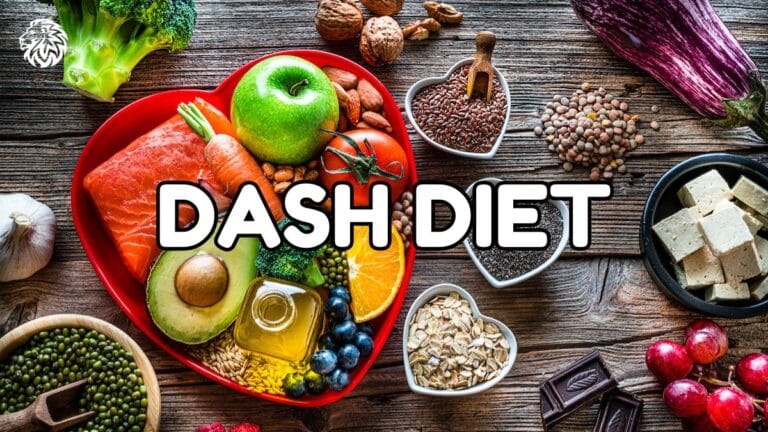The DASH (Dietary Approaches to Stop Hypertension) diet has gained significant attention for its benefits, especially in improving heart health. It’s more than just a way of eating—it’s a flexible and well-balanced plan designed to reduce blood pressure, promote healthy eating habits, and support overall wellness. If you’re wondering who the DASH diet is recommended for, this blog will provide clarity on the groups that can benefit the most.
1. People with High Blood Pressure (Hypertension)
The DASH diet was originally created to help people lower their blood pressure. If you’re someone who has been diagnosed with hypertension, or if your doctor has expressed concerns about your blood pressure, this diet could be a great solution.
High blood pressure, or hypertension, puts extra strain on your heart and arteries, increasing the risk of heart disease and stroke. By focusing on foods that are low in sodium and rich in nutrients like potassium, magnesium, and calcium, the DASH diet helps to naturally lower blood pressure levels. Studies have shown that following the DASH diet can reduce systolic blood pressure by up to 11 mm Hg and diastolic pressure by up to 6 mm Hg. This is comparable to the effect of some blood pressure medications, making it a solid choice for managing hypertension without drastic lifestyle changes.
2. Individuals at Risk of Heart Disease
Heart disease remains one of the leading causes of death worldwide, and the DASH diet is highly recommended for those who are at risk. If you have a family history of heart disease, or if you’re experiencing early signs such as high cholesterol or blood pressure, this diet could significantly lower your chances of developing heart complications.
The DASH diet emphasizes heart-healthy foods like fruits, vegetables, whole grains, and lean proteins. By incorporating more of these foods into your daily meals and limiting the intake of saturated fats, cholesterol, and processed sugars, you reduce your risk of heart disease over time. Furthermore, the diet helps manage other heart disease risk factors, such as high blood sugar and obesity, making it a comprehensive choice for heart health.
3. People Managing or Preventing Diabetes
If you have diabetes or are at risk of developing it, the DASH diet offers a healthy approach to managing blood sugar levels. The diet prioritizes foods that are low on the glycemic index, meaning they have a minimal impact on blood sugar spikes.
By focusing on complex carbohydrates, such as whole grains, and reducing the intake of refined sugars and processed foods, the DASH diet supports stable blood sugar levels. This can be especially helpful for those with type 2 diabetes or those who have been told they are pre-diabetic. Additionally, by encouraging weight loss and a healthier lifestyle, the DASH diet can be effective in reducing the chances of developing type 2 diabetes altogether.
4. Anyone Looking to Lose Weight
If your goal is to shed a few pounds in a healthy and sustainable way, the DASH diet can help. While it wasn’t specifically designed as a weight loss plan, the emphasis on whole, nutrient-rich foods naturally supports weight loss when followed consistently.
The DASH diet encourages portion control, reducing empty calories, and replacing processed, high-calorie foods with more nutritious options. Since the diet includes a good balance of fruits, vegetables, lean proteins, and whole grains, you’re likely to feel full and satisfied while consuming fewer calories, making weight loss easier. Combined with regular physical activity, many people find that they can achieve and maintain a healthy weight through this eating pattern.
5. Older Adults
As we age, maintaining good health becomes even more crucial. The DASH diet is highly recommended for older adults, especially those facing conditions like high blood pressure, heart disease, or elevated cholesterol levels.
Older adults can benefit from the diet’s focus on nutrient-dense foods, which provide essential vitamins and minerals while keeping calorie counts low. Foods rich in potassium, magnesium, and calcium, for example, help support bone health, which is important for aging bodies. Additionally, since the diet helps control blood pressure and improve heart health, it’s particularly beneficial for seniors who want to reduce their reliance on medication or prevent age-related health issues.
6. People with Kidney Disease
For those with chronic kidney disease (CKD), a modified version of the DASH diet can be beneficial. The diet’s emphasis on lowering sodium intake helps reduce the strain on kidneys by controlling blood pressure and minimizing fluid retention. However, people with CKD may need to limit their intake of potassium and phosphorus-rich foods, which are present in many of the diet’s core components. It’s crucial to work with a healthcare provider or a dietitian to tailor the DASH diet to meet your specific kidney health needs.
7. Athletes and Active Individuals
Athletes or individuals who engage in regular physical activity often benefit from the DASH diet’s focus on lean proteins and complex carbohydrates. These nutrients are essential for maintaining energy levels, promoting muscle recovery, and supporting overall physical performance.
Incorporating the DASH diet into your routine ensures that you’re getting enough nutrients without consuming excess fats or sugars that can slow you down. Foods like whole grains, lean meats, fruits, and vegetables offer the energy needed to fuel workouts and aid in recovery, making the DASH diet suitable for those with an active lifestyle.
8. Anyone Looking to Improve Overall Health
Even if you don’t fall into one of the above categories, the DASH diet can be a great choice for improving general health and well-being. Its focus on whole foods, balance, and moderation makes it a sustainable and nutritious eating plan for anyone looking to make healthier choices.
Whether you’re looking to improve your diet, reduce processed foods, or simply eat in a more balanced way, the DASH diet provides a flexible framework that can be tailored to your needs. The wide variety of food choices means you won’t get bored, and the lack of strict rules makes it easy to follow long-term.
Conclusion
The DASH diet is recommended for a wide range of people, including those with high blood pressure, individuals at risk of heart disease, diabetics, people looking to lose weight, older adults, and even athletes. Whether you’re managing a health condition or just aiming to improve your overall diet, the DASH approach offers a well-rounded and sustainable path to better health.
By focusing on nutrient-rich foods like fruits, vegetables, whole grains, and lean proteins, the DASH diet supports everything from heart health to weight management. Its flexibility makes it an approachable option for many, and it can be tailored to meet your specific health goals.
References
- Mayo Clinic. (n.d.). DASH diet: Healthy eating to lower your blood pressure. Mayo Clinic. https://www.mayoclinic.org/healthy-lifestyle/nutrition-and-healthy-eating/in-depth/dash-diet/art-20048456
- Harvard T.H. Chan School of Public Health. (n.d.). DASH diet. The Nutrition Source. https://nutritionsource.hsph.harvard.edu/healthy-weight/diet-reviews/dash-diet/
- Heart and Stroke Foundation of Canada. (n.d.). DASH diet. Heart and Stroke. https://www.heartandstroke.ca/healthy-living/healthy-eating/dash-diet
- National Kidney Foundation. (n.d.). The DASH diet. National Kidney Foundation. https://www.kidney.org/kidney-topics/dash-diet







